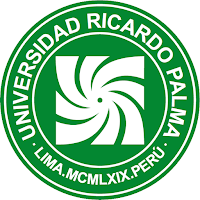The Black Heralds: «ferment(s) of Sun»
The Black Heralds: «ferment(s) of Sun» The Black Heralds: «ferment(s) of Sun»
Article Sidebar
Main Article Content
Pedro José Granados
Abstract
In «Imperial Nostalgia»: «[I am] a ferment of Sun / yeast of the shadow and the heart!» («Huaco»), of The Black Heralds (TBH), the word «ferment» —linked to the «Sun» acting in the «shadow and heart»— is similar, though not equivalent, to fragment. In this sense, and as we studied in Trilce: húmeros para bailar (2014), the poems of 1922 would not be «fragmented» or made up of «fragments» (European historical avant-garde); but, rather, fermented or «fermenting» (Inkarrí). The «heralds», as «Lung ferments [of Sun]», would constitute a community (Garden of Epicurus) or a susceptible Andean archipelago —although already opaque or mestizo (mixed)— to spread universally. A specific and concentrated reflection —«brain scene»— of the same (nature and function of the «fragments») would constitute Trilce; it is for this reason that this book of poems is more «abstract» or «theoretical» than LHN. For its part, Spain, Take this Cup From Me would constitute a signal and explicit recognition —already universal and multitemporal, in «[Children] if I delay»— of that same Andean archipelago, symmetrical and, perhaps, this time somewhat more evangelical or less «pagan» (Amerindian or Epicuric thought) than Trilce. Therefore, we postulate that «the heralds» are «blacks», in the manner of that buried and active «ferment [s] of Sun» of the poem «Huaco»; «children»: naughty, dirty, muddy. And, in addition, «yeast» as «children» as a meaning of promise, debut or future of an always perfect world. Children who will survive abortion (Trilce) or bullets (Spain, Take this Cup From Me) in a multicultural, multinational, multi-temporal and multidimensional ayllu where life encourages such a continuum.
Article level metrics
Downloads
Metrics
Article Details

This work is licensed under a Creative Commons Attribution 4.0 International License.
La revista utiliza una licencia Creative Commons para mostrar a los lectores y a los usuarios cómo se pueden utilizar los contenidos publicados.
Los contenidos publicados en la revista están bajo una licencia CC-BY 4.0, la cual permite:
- Compartir, copiar y redistribuir el material en cualquier medio o formato.
- Adaptar, remezclar, transformar y construir a partir del material para cualquier propósito, incluso comercialmente.
Bajo los siguientes términos:
- Atribución. Usted debe dar crédito de manera adecuada, brindar un enlace a la licencia, e indicar si se han realizado cambios. Puede hacerlo en cualquier forma razonable, pero no de forma tal que sugiera que usted o su uso tienen el apoyo de la licenciante.
La información de licencia se muestra e incrusta en las páginas de artículos y en ficheros de texto completo como sigue:
«Este obra está bajo una licencia de Creative Commons Reconocimiento 4.0 Internacional».
Arguedas, José María (1983). Obras completas. Tomo III: Los ríos profundos. Lima: Editorial Horizonte.
Capasso, Verónica y Bugnone, Ana (2016). «Arte y política: un estudio comparativo de Jacques Rancière y Nelly Richard para el arte latinoamericano». Hallazgos, 13, 26, 117-148.
Espejo Asturrizaga, Juan (1965). César Vallejo: itinerario del hombre. 1892-1923. Lima: Juan Mejía Baca.
Farrington, Benjamín (1968). La rebelión de Epicuro. Barcelona: Ediciones Cultura Popular.
Granados, Pedro (2004). Poéticas y utopías en la poesía de César Vallejo. Lima: Fondo Editorial de la Pontificia Universidad Católica del Perú.
__________ (2014). Trilce: húmeros para bailar. Lima: VASINFIN.
__________ (2017). Trilce/Teatro: guion, personajes y público. Aracaju: Editora ABH.
Itier, César (2012). Viracocha o el océano, naturaleza y funciones de una divinidad inca. Lima: IFEA/IEP.
Monguió, Luis (1952). César Vallejo, vida y obra. Lima: Editora Perú Nuevo.
Paoli, Roberto (1988). «El lenguaje conceptista de César Vallejo». Cuadernos Hispanoamericanos. Homenaje a César Vallejo, 2, 456-457, 945-959.
real academia española (2014). Diccionario de la lengua española. Madrid: Espasa Libros.
Vallejo, César (1996). César Vallejo. Obra poética. Edición crítica de Américo Ferrari. Madrid: Colección Archivos.
__________ (1999). Teatro completo. Tomo I. Edición de Ricardo Silva-Santisteban y Cecilia Moreano. Lima: Pontificia Universidad Católica del Perú.
__________ (2002a). «Guitry, Flammarion, Mangin, Pierre Louys». Artículos y crónicas completos. Tomo I. Lima: Pontificia Universidad Católica del Perú, 94-99.
__________ (2002b). «Carta de París». Artículos y crónicas completos. Tomo I. Lima: Pontificia Universidad Católica del Perú, 121-128.
Velásquez, José Ignacio (ed.) (2001). Guillaume Apollinaire. Alcoholes. El poeta asesinado. Madrid: Cátedra.
Vara, José (2012). «Introducción». En Epicuro. Obras completas. Edición de José Vara. Madrid: Cátedra.
Viveiros de Castro, Eduardo (2002). A inconstancia da alma selvagem. São Paulo: Cosac Naify.
_________ (2010). Metafísicas caníbales. Buenos Aires: Katz Editores.










